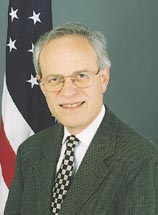
Assistant Secretary of State for Near Eastern Affairs Martin Indyk wraps up meetings with 16 Iraqi opposition groups in London. The meetings, arranged by the British Foreign Office, seeks to unite the expatriate groups as a viable alternative to Saddam Hussein. The groups pledge to work to indict the Iraqi president for war crimes as one means of uniting Iraqi public opinion against him.
“We are not talking here about the opposition groups being involved in activities that are designed to overthrow violently the regime in Baghdad. We are talking about the opposition groups developing political support for a new Iraq, a new open, democratic Iraq,” the Foreign Office junior minister said.
By late 1998, with much of the White House’s (and the CIA’s) attention shifted to al Qaeda, Iraq had fallen off the radar screen, and with an end to U.N. inspections, there was little new reliable intelligence coming from inside the country. But Congress passed a law allowing President Clinton to spend 93 million dollars helping anti-Saddam groups and the beginning of the end was afoot, particularly in providing an outsize role to the Iraqi exiles, who later would manipulate both the Clinton and Bush administrations with fake intelligence and false promises of support inside the country. Indyk would go on to become ambassador to Israel (1999–2001), a position he also filled from 1995–1997.